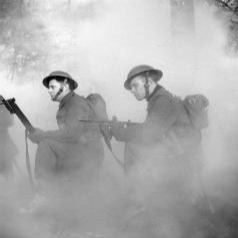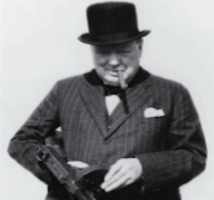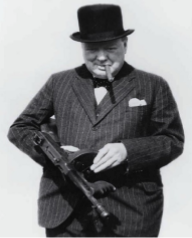On the darkest hour of 4 June 1940, Prime Minister Winston Churchill wrote to General Lord Ismay, Head of the Military Wing of the War Cabinet Secretariat, demanding, that under no circumstances would Britain resort to the defensive strategy that had failed the French.
Instead, work was to begin immediately to organise raiding forces that would strike along the coasts of the occupied countries.
Determined to take the war to the Germans, in a further minute to Ismay two days later Churchill added that:
“Enterprises must be prepared with specially trained troops of the hunter class, who can develop a reign of terror first of all on a “Butcher and Bolt” policy… I look to Chiefs of Staff to propose me measures for a vigorous, enterprising and ceaseless offensive against the whole German occupied coastline, do a deep a raid inland, cutting vital communications, and then back, leaving a trail of German corpses behind them”
Within days of Churchill’s demands for troops of the “hunter class” the Chief of the Imperial General Staff, General Sir John Dill, delegated the task to his Military Assistant, Lt Col Dudley Clarke, Royal Artillery, to initiate the ‘Butcher and Bolt’ policy.
Clarke, who had grown up in South Africa, had a profound interest in military history and fervently recalled how the Spanish had engaged in hit-and-run raids behind enemy lines with small bands of lightly armed irregular soldiers, against the French during the Peninsular War.
He recollected how the Boers had used similar tactics against the British at the end of the nineteenth century, however, it was by witnessing for himself how a handful of ill-armed Arabs, attacking by surprise and manoeuvring superbly, had tied down more than an entire Corps of regular British Army troops in Palestine in 1936, that convinced him that this type of irregular guerrilla warfare was what was required to take the fight back to the Germans.
With this notion in mind Clarke declared that:
“Guerrilla warfare was always in fact the answer of the ill-equipped patriot in the face of a vaster though ponderous military machine; and that seemed to me to be precisely the position in which the British Army found itself in June 1940.”
For more blogs by Ian McHarg click here
For books by Ian McHarg click here


